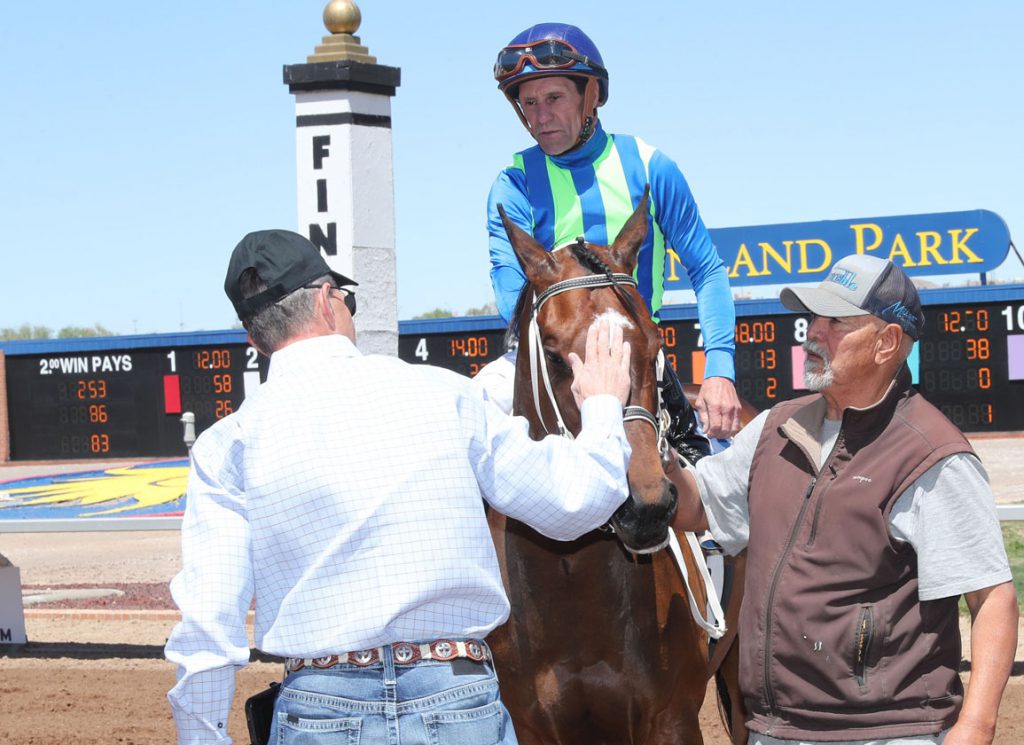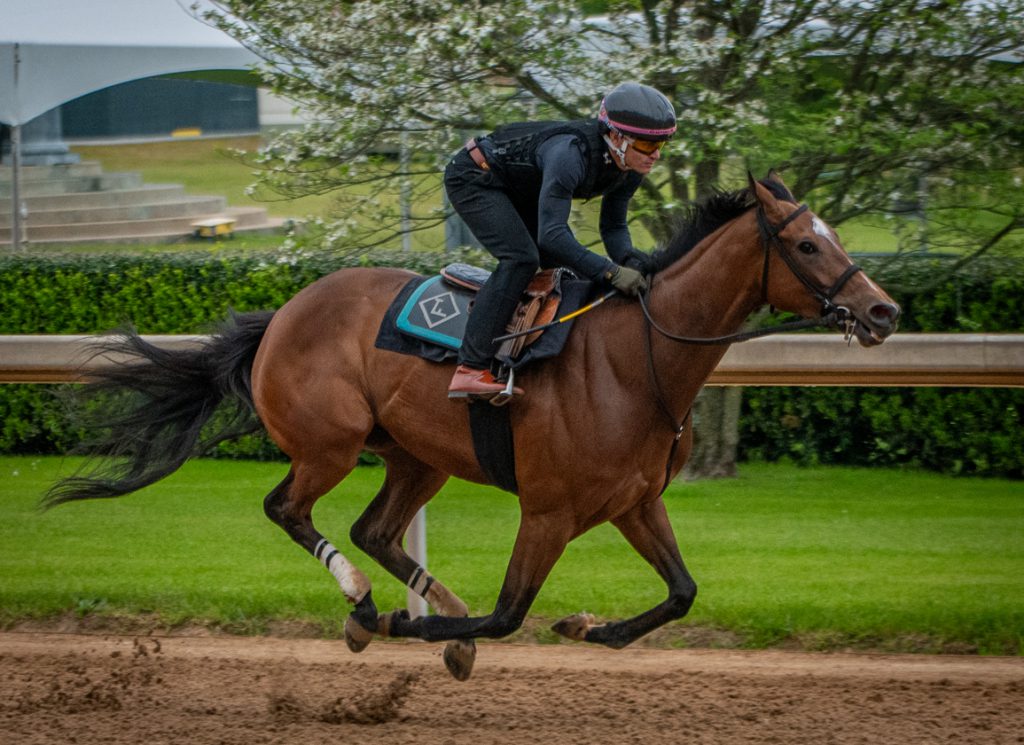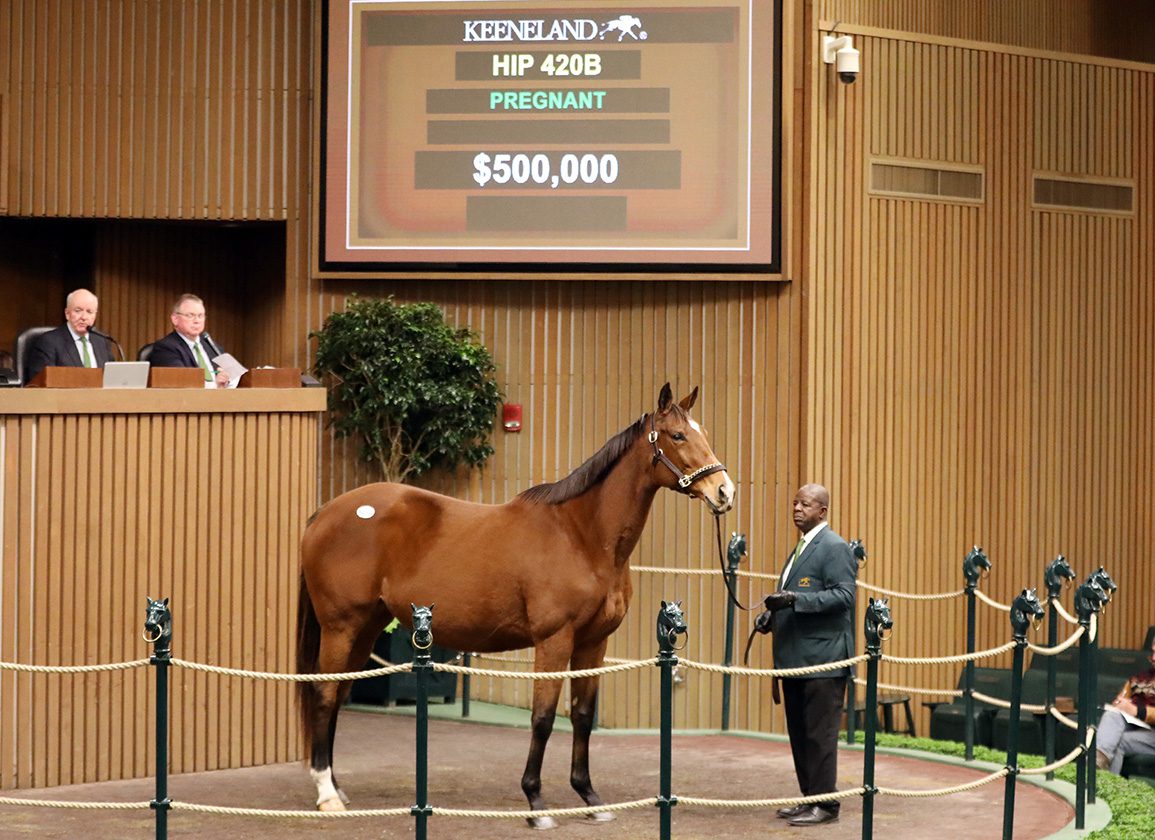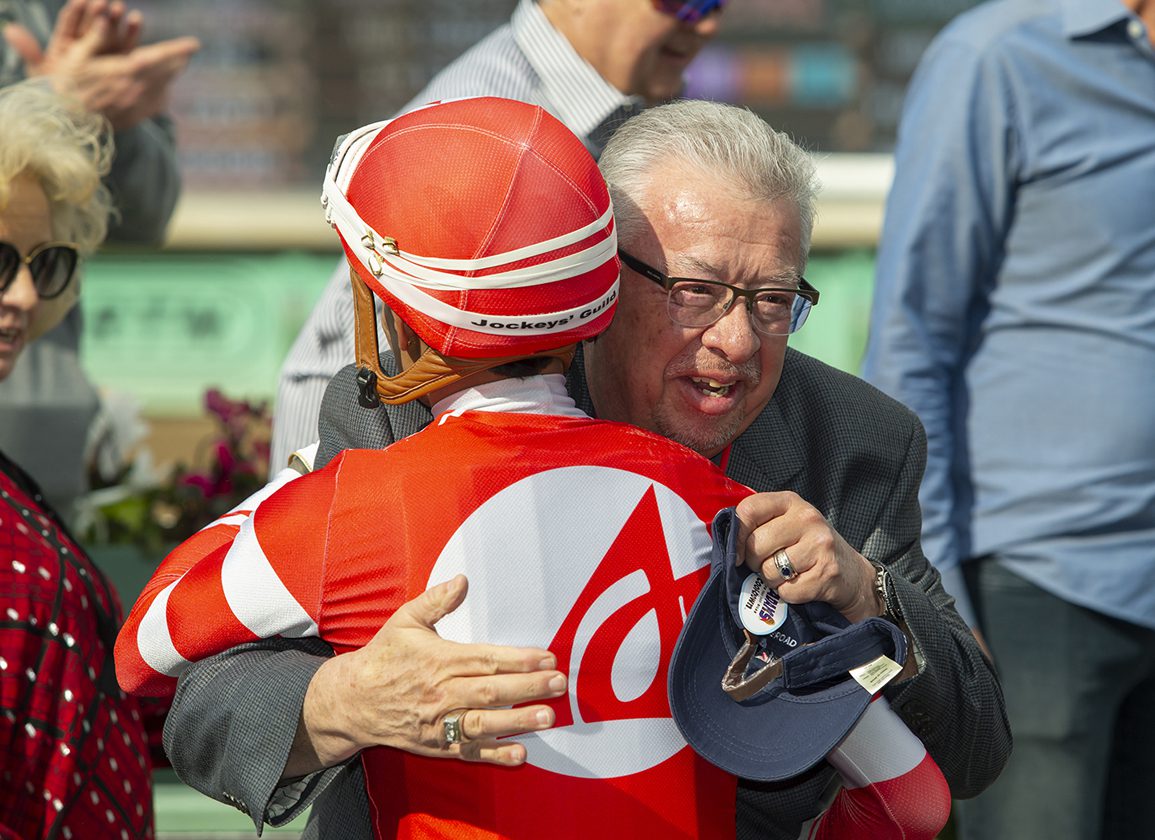SUNLAND PARK, New Mexico–Todd Fincher cuts an easy path along the apron through the Sunday crowd at Sunland Park, giving nods and an occasional smile as he goes. It's closing day at the track and a homebred owned by Kirk and Judy Robison from his shedrow just won the Island Fashion S.
Sporting his standard duds, including a ball cap, creased jeans and shades, Fincher has his modular phone slung on his belt, ready to be drawn from its holster.
“Busy,” replies the New-Mexico based trainer when asked about how it's all going. “It's just been such a non-stop crazy time, but coming back to Sunland Park, this is my bread and butter.”
Fincher returned only a week ago from his second Middle East junket which capped Senor Buscador's (Mineshaft) successful two-race sojourn to that part of the world. Unless you have resided under an igneous rock, then you know that Joey Peacock's 6-year-old stalwart won the G1 Saudi Cup and then finished third in the G1 Dubai World Cup.
“The experience was great and even though the result in Dubai wasn't what we wanted, everyone was incredibly welcoming,” he said. “Even in a race as big as that one was, I don't get disappointed because at least 75 percent of the time you are going to lose in racing, so getting down like I used to serves no purpose whatsoever.”
Don't misinterpret Fincher's words because he wanted Buscador to win the World Cup. He wants to win them all and badly. Feigning disappointment is his prosaic outlook shining through. You have to have this kind of attitude, which hails from a special place inside and comes from a host of life experiences.
Like a character out of an Ace Reid Cowpoke cartoon, the horseman has a thin build which is a reminder that he used to ride for a living. The mental toughness he developed in the saddle while breaking young horses and as a New Mexico jockey some 30 years ago has served him well, especially in a business like conditioning.
“I'd win three races riding and think I was on top,” he said. “And then that would dry up and I would get really, really down on myself, so you can't do that. It's a humbling sport with so many factors out of your control. You always have to be thankful for wins like Buscador delivered and he is not done yet, we hope.”
Fincher confirmed that Senor Buscador has arrived safely at Peacefield Farm in Temecula, California and will be given several weeks off before a new training cycle could start.
“Just like always, we are going to let him tell us,” he said. “I think the GII Pat O'Brien S. could be possible, we'll see, and then long term, the GI Breeders' Cup Classic.” Two years ago at Del Mar, Buscador finished third in the O'Brien to Laurel River (Into Mischief), who ran away with this year's Dubai World Cup.
While the Saudi Cup champ gets a break, his trainer will be doing nothing of the sort. With Sunland complete, Fincher's stable shifts to SunRay Park up in Farmington, New Mexico, but he loaded up a trailer bound for Hot Springs, Arkansas to start this week.
“We have a couple that I am taking to Oaklawn and I will be there all week,” he said. “I don't like hauling them this far, but it is going to be good to run against competition like this.”
Fincher is entering Perfect Dude (Majesticperfection)–who shifted from Vann Belvoir over to him in February–in Saturday's GIII Count Fleet S. It's a race which will feature Skelly (Practical Joke), who is making his first U.S. start since the gelding ran second in the G3 Riyadh Dirt Sprint in Saudi Arabia.
Making the some 900-mile trip to Oaklawn for the GI Apple Blossom S. is Flying Connection (Nyquist). Last year, the filly won the Island Fashion S. and then netted the Sunland Park Oaks, which earned her a spot in the starting gate for the GI Kentucky Oaks. She ran a game sixth in defeat that Friday.
“Perfect Dude is a fairly new acquisition, but I can tell he has a ton of talent and he is really quick out of the gate,” said Fincher. “I think Flying Connection has developed a real tactical advantage and she has really come far since last year when she just went straight to the front all the time.”
Flying Connection is co-owned by Brad King, Randy Andrews, Chris Coleman, Jim Cone, Suzanne Kirby and Lee Lewis, which is the same group who invested in another Fincher-trained runner, Olivia Twist (Mshawish). Incidentally, King, Andrews, Cone and Lewis are a part of MSW Candy Aisle (Gun Runner), who was ninth in Oaklawn's GII Fantasy S. Mar. 30, and who Fincher will possibly send to the Valley of the Vapors S. Apr. 20.
A half-sister to MGSW/MGISP Skippylongstocking (Exaggerator), Olivia Twist already made the trip to Hot Springs to join Candy Aisle and put in a six-panel work over the weekend. According to her trainer, the 4-year-old could be ready for the April 27 running of the Dig A Diamond S., but for now Fincher is taking a wait-and-see approach when it comes to her next start.
“She raced a ton starting as a 2-year-old,” he said. “I really think she needed a good rest and got it during the second half of last year. I really like the way she carries her weight and she's developed over the winter, she has continued to be aggressive in the mornings, so we'll see if that continues to translate to the afternoons.”
Olivia Twist started eight times from when she broke her maiden at Remington Park late in her juvenile year through last summer at Del Mar. The biggest puzzle for Fincher is to figure out what distance she wants.
“That will come,” he said.
In the interim, Todd Fincher has plenty more puzzles to solve as Saudi Arabia and Dubai are now firmly in the rearview mirror. The road to Oaklawn beckons, and that means it is an opportunity to develop some more bread and butter.
The post Fincher Back To ‘Bread & Butter’ After Dubai, Oaklawn Road Beckons appeared first on TDN | Thoroughbred Daily News | Horse Racing News, Results and Video | Thoroughbred Breeding and Auctions.




